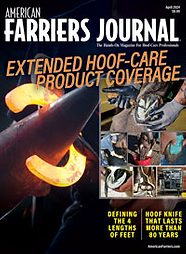As the public comment period for the proposed amendments to the Horse Protection Act came to an end last week, nearly 200 influential people banded together to urge action from the United States Department of Agriculture.
Ted Yoho and Kurt Schrader — the only veterinarians serving in Congress — submitted a letter calling on Secretary of Agriculture Tom Vilsack to make changes to the proposed amendments to the HPA and finalize it before the Obama administration concludes.
“As lead sponsors and cosponsors of the Prevent All Soring Tactics Act, H.R. 3268, we are pleased that the proposal includes key elements consistent with the PAST Act to strengthen enforcement of the Horse Protection Act (HPA),” according to the letter, “but also have some concerns about the rule’s impact on the wider horse industry where soring is not a problem.”
The 181 members of Congress who signed the letter are urging the USDA to ensure three reforms are included in the final rule applied to the HPA — the elimination of industry self-policing, ban incentives to sore Walking Horses and apply the changes to only Tennessee Walking Horses, Racking Horses and Spotted Saddle Horses.
Eliminate industry self-policing. The members of Congress are urging the end of designated qualified persons (DQP) licensing programs that are sponsored by horse industry organizations (HIO) and replace them with “USDA-licensed and trained third-party, independent inspectors who will be monitored by and accountable to the agency for enforcement of the Horse Protection Act.”
Ban incentives to sore Walking Horses. The letter calls for the ban of “equipment associated with soring in the specific breeds known to be subjected to soring using this equipment: Tennessee Walking Horses, Racking Horses, and Spotted Saddle Horses. The veterinary community and leading horse industry groups have called for an end to the use of ‘action devices’ (including chains), ‘performance packages’ (also called stacks and pads), weighted shoes, wedges, hoof bands, and other devices that are not used specifically for protective or therapeutic purposes as prescribed by a licensed accredited veterinarian. … This prohibition should include exemptions for devices prescribed by licensed accredited veterinarians as described above.”
Apply the rule to Tennessee Walking Horses, Racking Horses and Spotted Saddle Horses. Since these breeds have a known history of soring, as well as an ongoing problem, the members of Congress who signed the letter are urging the USDA to involve only Walking Horses, Racking Horses and Spotted Saddle Horses. “Naming these three breeds is vital to ensure the wider horse industry is not adversely impacted by the new regulations or new regulatory burdens are not inadvertently placed on breeds and disciplines that have no history of soring.”
The letter from the members of Congress is very similar to the comments submitted just one day later by the American Horse Council.
“The PAST Act (S. 1121/ HR 3268), which is supported by most major horse show organizations and a majority of Congress, includes prohibitions similar to the proposed rule,” the AHC comment states. “However, the PAST Act explicitly limits such prohibitions to Tennessee Walking Horses, Racking Horses, and Spotted Saddle Horses. This specificity not only ensures that the problem of soring is addressed, but makes it certain that the rest of the horse show industry is not negatively impacted.”
The AHC, however, went into great detail regarding its stances on a variety of proposed changes including prohibited actions, practices, devices, substances, weighted shoes, horse protection inspectors, show farrier requirements and record keeping requirements.
The American and International Associations of Professional Farriers and the American Farrier's Association also have submitted comments regarding the proposed amendments.
The USDA’s Animal and Plant Health Inspection Service, which is spearheading the proposed amendments, has not set a timetable for a decision.








Post a comment
Report Abusive Comment